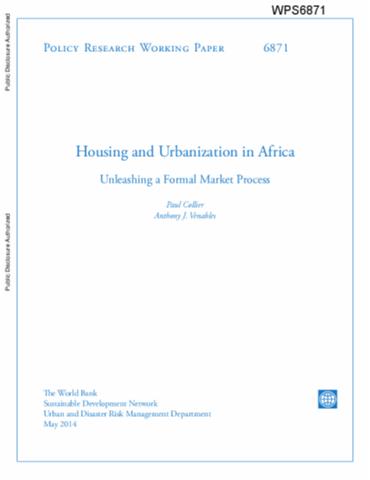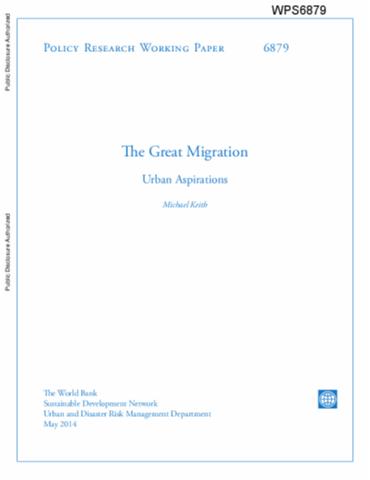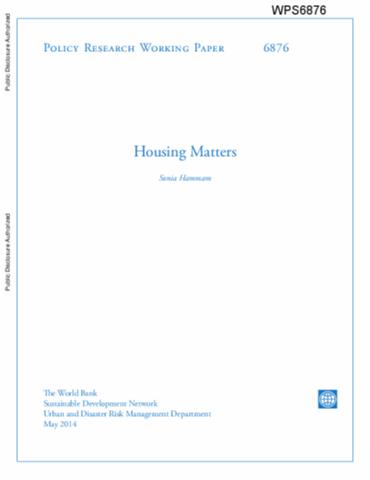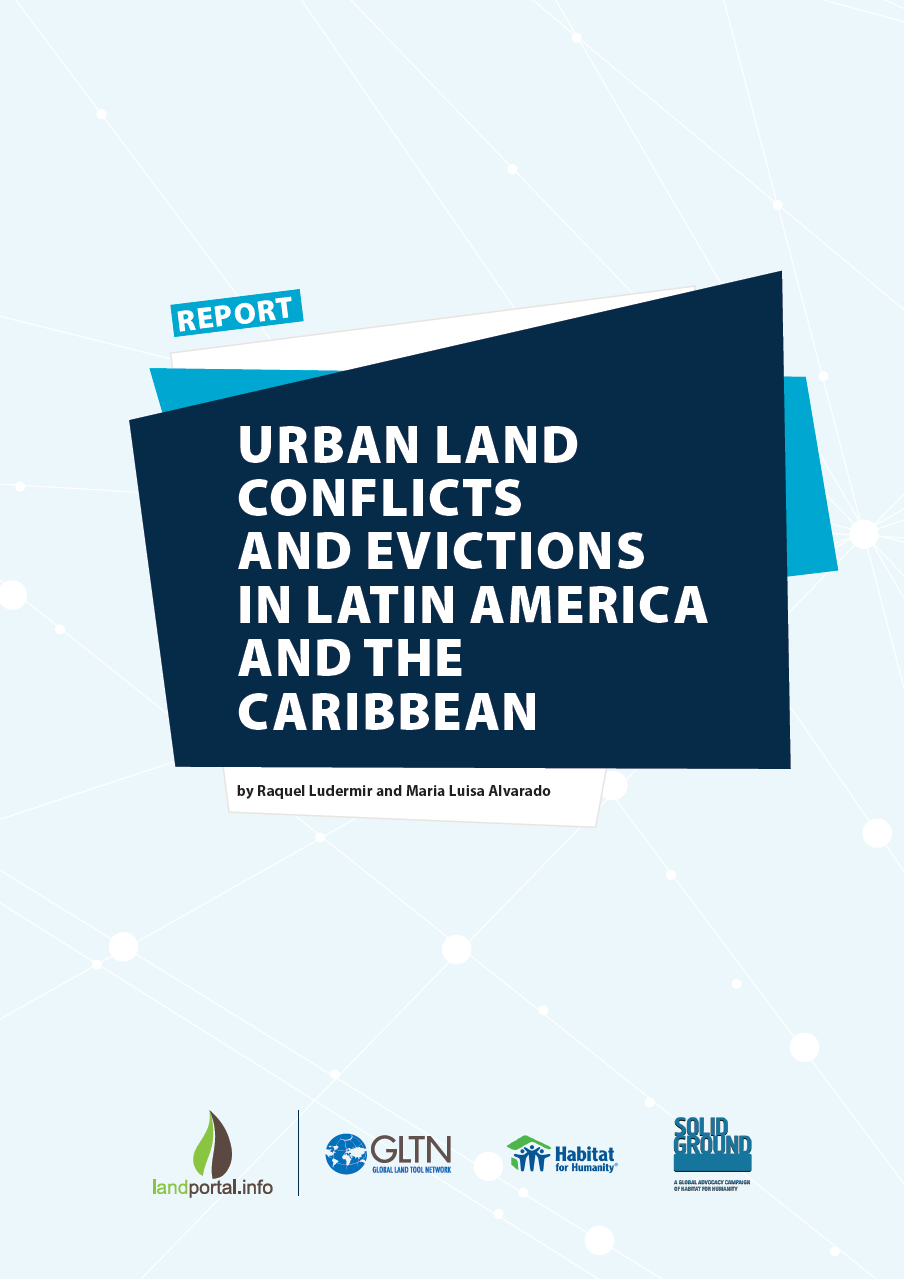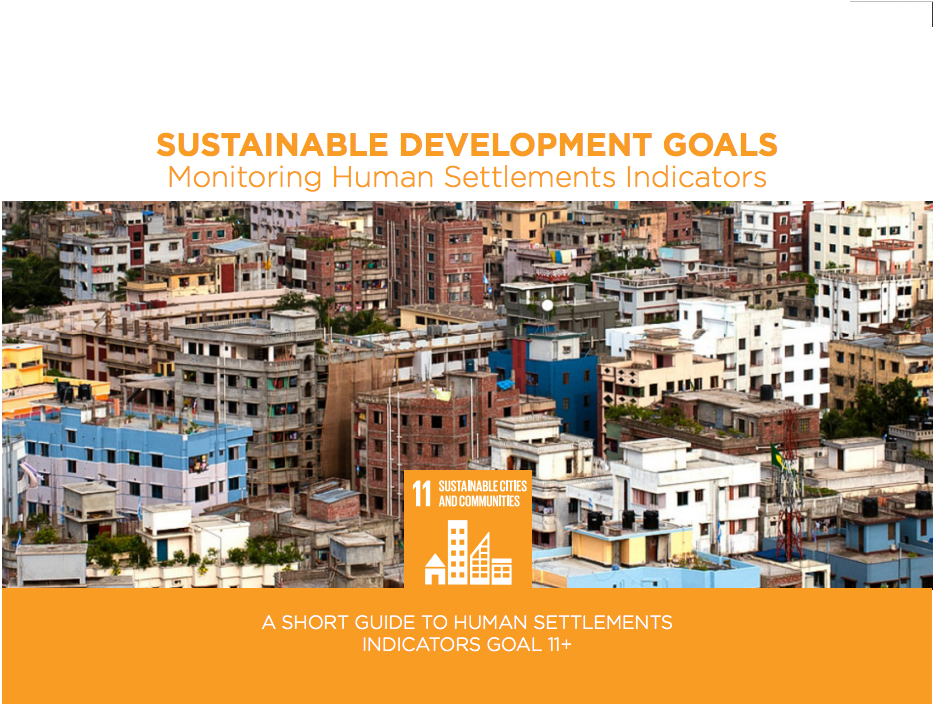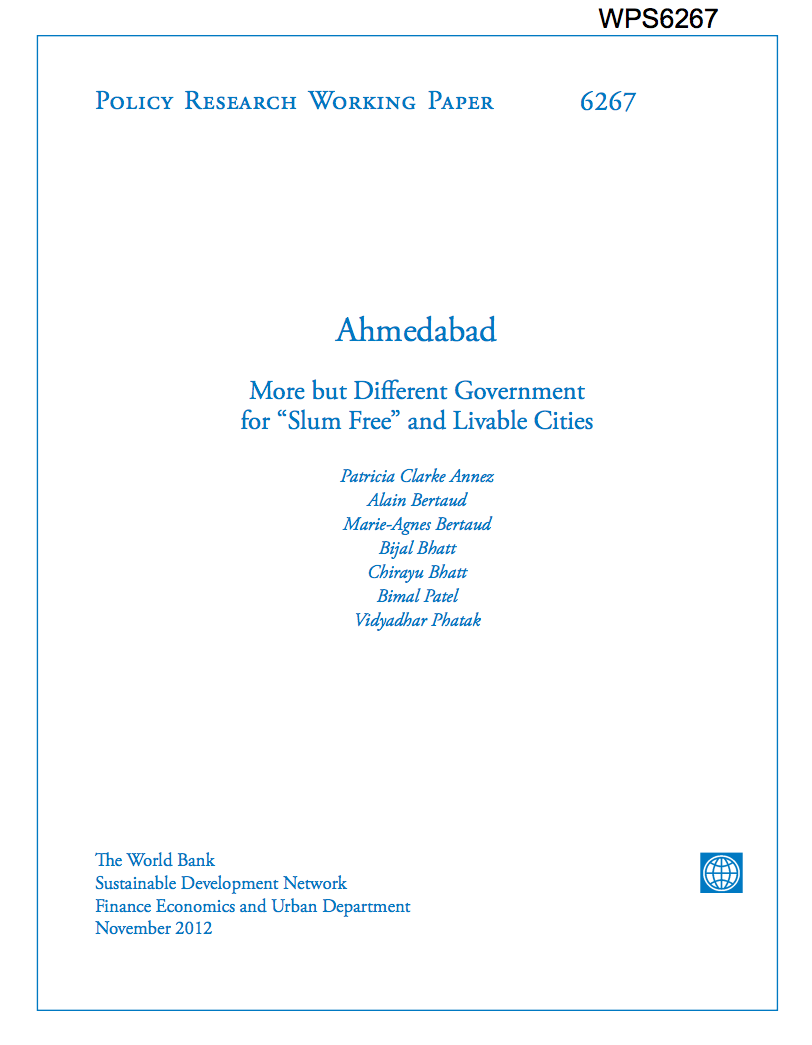Housing and Urbanization in Africa : Unleashing a Formal Market Process
The accumulation of decent housing matters both because of the difference it makes to living standards and because of its centrality to economic development. The consequences for living standards are far-reaching. In addition to directly conferring utility, decent housing improves health and enables children to do homework. It frees up women's time and enables them to participate in the labor market. More subtly, a home and its environs affect identity and self-respect.

